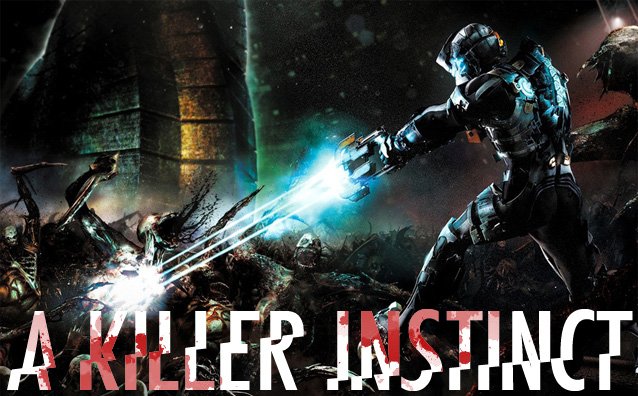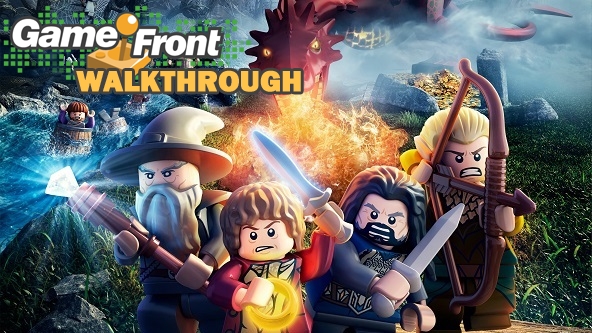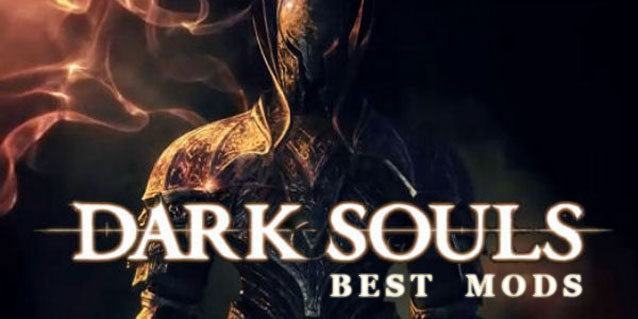


Violence is in our nature. It’s been around for millennia, and the recesses of your mind may subliminally crave it. Literature and entertainment has always been focussed on this base instinct, and this trend lives on today.
One of our oldest surviving works of literature ‘The Epic of Gilgamesh’ is a story fixated on brutality. In this story, Gilgamesh, forces his subjects to compete in brutal blood-sports for his entertainment. A case of art imitating life.
As we know, this sort of gladiatorial combat was commonplace throughout history, going so far back there is no agreed date for its inception.
This isn’t a culture specific obsession either, it’s global. Here in the UK, we publicly executed our last criminal in 1964. People once gathered in their droves to witness this morbid act of justice - even taking their children along to point at the pantomime villains as they hung, limply for their crimes.
Blood for entertainment is nothing new, but it has evolved across the generations, conforming to society’s sense of the ethically sound. Now we have Mixed Martial Arts and various other sports to satiate our bloodlust.
Videogames have recently been under scrutiny about whether they influence acts of savagery. The debate started to gain momentum this month, with President Barack Obama proposing funding for research into the link.
I interviewed Max Skidmore, of Chao Praya: Muay Thai academy in Lincoln. A professional fighter for five years, I wanted to understand what drove him to fight. “It’s the ultimate way to test yourself, and the adrenaline rush is like no other,” explains Max, “When I’m not in the ring, my thoughts are to test my abilities. When I’m in the ring, things change, the alpha-dog comes out and all I want to do is destroy my opponent. But with experience that feeling dulls a bit. I’d say the instinct is there for violence, but we’ve evolved to control it.”
It’s interesting that his first answer is that he does it for the ‘rush’, as gamers can experience a similar euphoria when gaming.
A recent study sheds some light on why we may crave adrenaline, or violence itself: "Aggression occurs among virtually all vertebrates and is necessary to get and keep important resources such as mates, territory and food," said Craig Kennedy, professor of special education and pediatrics at Vanderbilt University in Tennessee. "We have found that the reward pathway in the brain becomes engaged in response to an aggressive event and that dopamine is involved."
Dopamine plays a large role in reward-driven learning, so it makes sense that if the brain increases dopamine levels when committing, or witnessing acts of aggression, that the human mind may crave it. The brain also emits dopamine when having sex, rewarding territory control and procreation.
Max admits that he craved violence in his pre-fight days, “Yeah, I did before I started Muay Thai, but [the sport] has given me boundaries, when alcohol isn’t involved at least.” The effects of alcohol on the brain are well documented to incite aggressive behaviour, yet there is no discussion on another prohibition, despite the cost to the police force and NHS.
In fact, drinking establishments now open for longer hours. But, it’s perceived as an acceptable narcotic. And again, it’s a case of ‘the man’ deciding that some negative influences are socially acceptable.
After Max started Muay Thai, his need for aggression diminished. “I had little man syndrome...but now I don’t feel the need to prove anything.” Surely the same argument could be made for games? A way of venting frustration in an environment where nobody is adversely affected.
Max used to play videogames, but now his training and full-time work devour his time. When I asked if he thought game violence was comparable to the real thing, he answered “No, real life is worse. Games are made for fun and I never felt any anger when I played. The emotions from playing games, compared to real confrontation are worlds apart.”
If your average gamer were to witness a gunshot wound, I’m sure they wouldn’t ‘woop’ like they may in-game. It’s just a case of the government patronising our intelligence, not trusting us to separate fantasy from reality.
For a more balanced debate I spoke to a pacifist, Fredrik deBoer. Freddie, is a graduate student at Purdue University, where he studies literacy education and also writes for the New Inquiry.
He had quite the story to tell regarding his feeling towards pacifism: “Like any political orientation, I came to pacifism through a variety of sources: my upbringing was generally that of the socialist left, coming from both of my parents. My grandfather was an old-school pacifist who opposed the USA’s entrance into the first world war”.
“In my early twenties I was more of a typical left-wing critic of US intervention than a full-fledged pacifist, but during a period when anti-war organising was a 30 hour a week job for me, I saw how dedicated the Quakers (a Christian sect) I knew were. I was reading books by Martin Luther King and Thich Nat Hahn, and I thought, there's a moral challenge here, and if I'm going to say I have beliefs, it's time to stand for them”.
I asked his opinion towards martial arts, and surprisingly he watched it. I questioned whether this conflicted with his beliefs and he cited “consent” as the differentiating factor.
I enquired the difference between two fighters consenting, and two squadrons of paid soldiers at war, “Soldiers may consent” he said, “But everyone affected by war does not. There has never been an armed conflict that has not involved the projection of violence against those who have not consented”. His point was valid, and there’s a huge gulf separating the two.
“Also, consider the conditions of an MMA fight”, he continued, “It's vastly safer to fight in an organized competition than to get into some random fight on the street: there are coaches, refs, doctors, paramedics... If people have aggression that they want to express through fighting, I'm much happier if they do it under those conditions. No one has died, that I'm aware of, in professional MMA”. I believed he was correct, but when I checked the facts, it seemed that three have died since the sport’s inception - the most recent being 11 August 2012.
Freddie said that he enjoyed videogames, and was currently playing XCOM.
I asked if he was worried about violence in games escalating in tandem with graphical fidelity. “I think videogames are like any other kind of artwork, in that they should be evaluated on multiple levels, particularly when it comes to portraying violence or cruelty. One thing I realised when I was first moving in the direction of explicit pacifism, is that many of us have the problem in America of only interpreting violence as a distant or unreal idea”.
The problem isn’t fantasy manifesting as violence, but violence itself has become a twisted caricature. People aren’t becoming desensitised, but it’s something seen on TV, in far off wars, fought by strangers. All media turns violence into a myth for privileged cultures, so why are games scapegoated?
The parallel has been drawn before: comics, rock&roll...We live in a society terrified by change, or people with different interests; maybe this stems from the desire of previous generations to justify their own passions.
“I think that some videogames should be portrayals of a realistic world, and sadly the real world has a lot of violence in it”. He continued, “At the same time, that's not an artistic excuse, and I think a responsible critical evaluation of a video game should consider its stance towards violence”.
Indeed graphic content in games should be analysed, but you see much worse in your local cinema. “But as far as blaming video games for violence,” he continued “I think it's a classic symptom of our current, which is that we mistake the virtual for the real”.
The big question is: are games responsible for the glorification of violence? “The conversation, at least as far as I've seen, tends to boil down into two extremes: either video games are directly responsible for desensitizing children to violence and should be regulated, or video games have no effect on the people who play them.”
I believe the truth is nestled between these two extremes, but I also believe that all other forms of media hold responsibility. Freddie had his views,“My own position is that I can easily imagine that they have some effect on kids, but that the solution to that problem is parenting, rather than regulation”.
“I think parents have to talk to their children about violence in general and media violence specifically, and teach them to understand the difference between games and reality.” He continued, “I do believe the government can present incentives for effective parenting, but ultimately if you need government regulation to do your job for you in regards to teaching your child about videogame violence, you're already in trouble”.
And why should we hand control to our overlords? Especially when the internet is a minefield of shocking footage and it goes unpoliced. The responsibility should fall on the individual, or in the case of a minor, the parents.
Most parents are ignorant to the content on a disc, yet still buy the latest title for their children. Assuming the shops are enforcing their duty of care, then the countless teens, and indeed pre-teens on Call of Duty, can only mean one thing: the parents are buying age-restricted products for their children.
“Right”, Freddie agreed. “Parents have to know what they’re bringing into their home. If they think that they've done a good job of explaining to their kids about violence and why it’s important, they can make the informed choice to give it to their kids.”
I wondered if Freddie thought playing violent games conflicted with his pacifism. “It’s an interesting question,” he replied. “I mean XCOM is violent; I’m mowing down aliens with lasers and yet it’s not really considered violent because of the cartoony visuals and the situation isn’t considered ‘real’. For me, the question isn’t so much about the violence itself, but more the game’s orientation towards violence”.
I consider Fallout 3 as the best example of extreme violence in games. I asked Freddie’s opinion on it and surprisingly, he had played that too. “Yeah, I liked Fallout a lot, and that’s a good point; you decapitate people constantly. From the outside it’s a game about violence, but it takes pains to make compassion a major element. You’re in this brutal world, where cruelty is common, but you have the capacity to help people who can do nothing for you. Does that mean it’s sophisticated? Not really; if a guy shows up as red on your radar, you can kill him without concern, and that’s a bit juvenile”.
I thought of some of the meta-games that some might enjoy. The Sandman Perk, where you kill sleeping characters, could actually be used to roleplay as a serial-killer. I asked Freddie if this is troubling, or harmless fantasy. “What makes me troubled in that scenario isn’t that you have the capacity to be evil, because that exists in reality. What troubles me is why people would choose that? What conditions them to act that way?”
People like to push boundaries in a world without consequence as humans are curious by nature.The first thing I did when I booted up a recent demo, was try to slice a cat with a Katana. I wouldn’t do this in reality, I love animals, but that cat wasn’t a living entity.
The thing that I find most strange about the debate, is that regardless of the abundance of pornography in society, sex in games is still considered taboo - more than killing. Films often portray sexually graphic scenes, even sometimes based on true stories, yet if games were to try a similar trick they would never see release.
“Yeah, it’s strange” Freddie said on the subject, “But within the culture, it’s par for the course. Part of the reason that I’m not willing to blame videogames for violence is that they’re just an expression of a culture infatuated with violence”.
“So many of our myths and stories are based on the juvenile idea that problems can be solved by punching people. Meanwhile, sex is still considered something to be talked about in hushed voices. The whole Hot Coffee thing with Grand Theft Auto was hilarious”.
He is referring to a mini-game in GTA: San Andreas, where the protagonist could have sex.
Not only did they retain their clothing, but the content was hidden on the disc at the last minute, for fear of retribution. Unfortunately for Rockstar, a hacker found the hidden files, and the excrement hit the fan in a big way. Robbing houses? Fine. Killing working girls? Fine. Fully clothed rubbing? Not fine.
“Right,” Freddie agreed, “I mean, you're talking about a game where you can pull a guy from his car, beat him to death with a baseball bat, then use that car to run over a dozen innocent people. But it's this crude sex scene that you can only unlock through hacking that gets people offended. I think there's still this perception that videogames are for kids, which is part of it. Unfortunately I think the videogame industry has a hand in that perception”.
How will the medium mature when any risk taking is met with controversy? Hopefully the day when we find out is no longer so distant. The gap between ‘gamers’ and ‘non-gamers’ is closing rapidly and most people play games in one form or another, it’s just a matter of time until people who don’t game are in the minority.
I will leave you with a pearl of wisdom from Freddie, “I'm a pessimist by nature, but the independent game phenomenon gives me hope for as much diversity in games as we have in movies - where you've got the big blockbusters, the art house movies and the foreign films. But to really get meaningful diversity, videogame makers have to trust their audience enough to produce games with other mechanisms than ‘go kill this bad guy’. And I say that less in the sense of being anti-violence and more in the sense of just wanting more nuanced and complex games.”




 Sid Meier's Starships Guide: How to Pick the Best Wonders
Sid Meier's Starships Guide: How to Pick the Best Wonders Top 10 Best FPS Games for Mac OS X
Top 10 Best FPS Games for Mac OS X 15 Best Dark Souls Mods: Enhanced and Amplified
15 Best Dark Souls Mods: Enhanced and Amplified Warframe: Planets, Bosses, Components and Rewards guide
Warframe: Planets, Bosses, Components and Rewards guide Fallout 4: How to Get the Locked Vault 111 Cryolater Gun Using Dogmeat
Fallout 4: How to Get the Locked Vault 111 Cryolater Gun Using Dogmeat